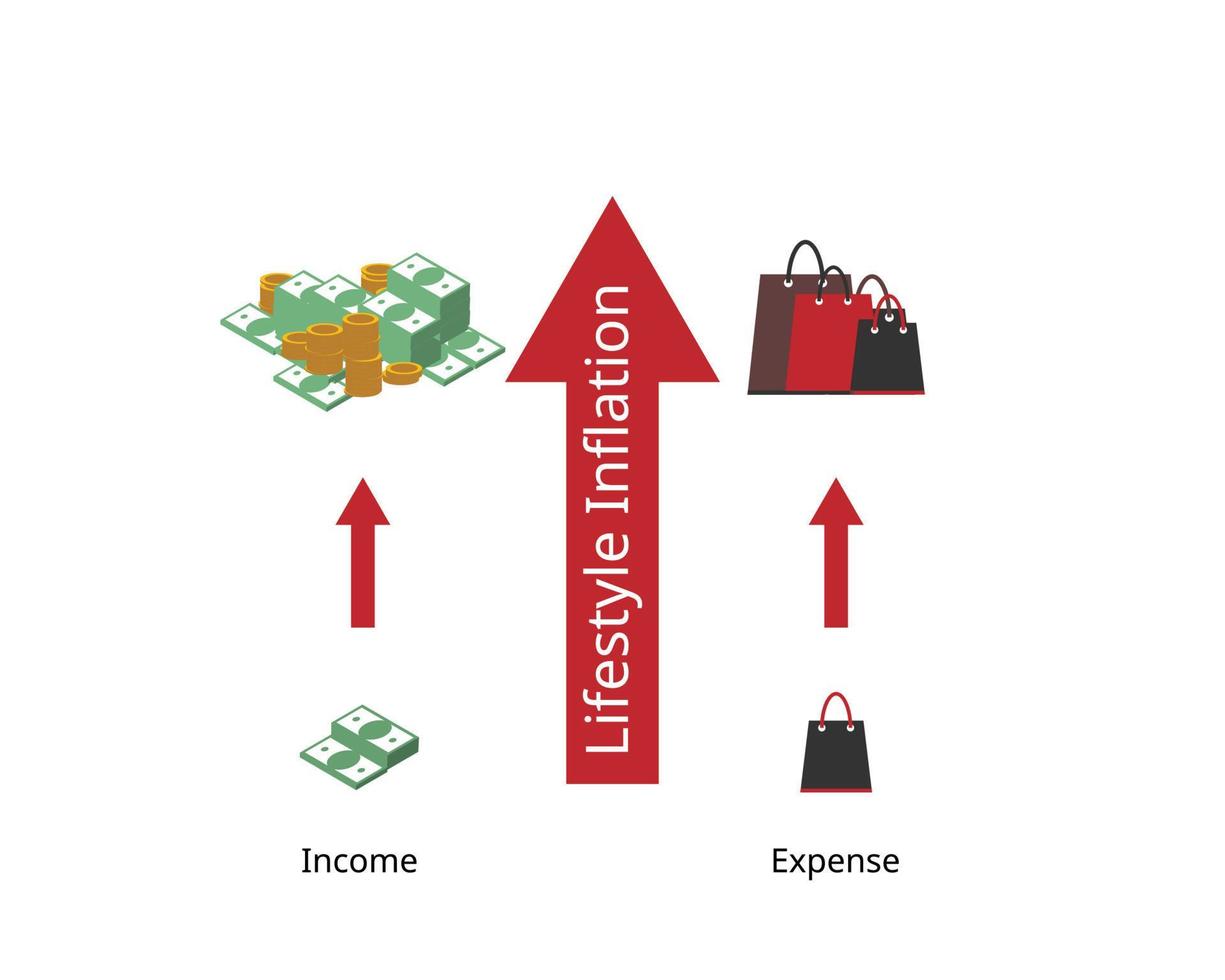Earning more money feels fantastic—until you realize you’re still living paycheck to paycheck despite the raise. This frustrating scenario affects millions of professionals who fall victim to lifestyle inflation, a phenomenon where spending increases alongside income growth. Also known as lifestyle creep, this financial trap can prevent you from building wealth and achieving financial independence, regardless of how much you earn.
Lifestyle inflation occurs when people automatically upgrade their spending habits as their income rises, believing they deserve nicer things or can afford more luxuries. While some lifestyle improvements are natural and deserved, uncontrolled spending can quickly outpace income growth, leaving even high earners struggling financially. The key lies in making intentional financial decisions that balance enjoying your success with securing your financial future.
Understanding the Hidden Dangers of Lifestyle Inflation

Lifestyle inflation creates a dangerous cycle where increased earnings lead to higher expenses, ultimately leaving you no better off financially than before. This pattern causes many people to live paycheck to paycheck, struggle with bill payments, and lack emergency funds for unexpected setbacks like medical bills or job loss.
The psychological aspect makes lifestyle inflation particularly insidious. As income grows, people often justify purchases by thinking they can afford them, without considering the long-term impact on their financial goals. Social media and peer pressure intensify this problem, as people feel compelled to “keep up with the Joneses” and match others’ apparent lifestyles.
Create and Maintain a Strategic Budget
The foundation of avoiding lifestyle inflation starts with establishing a clear budget that aligns with your financial priorities. When your income increases, resist the temptation to abandon budgeting—this is precisely when you need it most.
Consider implementing the 50-30-20 budget rule: allocate 50% of your income to needs, 30% to wants, and 20% to savings. As your income grows, maintain these proportions rather than inflating your lifestyle across all categories. Calculate the real impact of any raise after taxes and deductions, then make conscious decisions about how to allocate the additional income.
Set realistic monthly budgets for essentials like housing, utilities, and groceries, ensuring you include dedicated categories for savings and debt repayment. Track your expenses regularly to identify areas where spending might be creeping upward without adding real value to your life.
Prioritize Savings and Automate Your Financial Success
One of the most effective strategies to combat lifestyle inflation is paying yourself first through automated savings. Set up automatic transfers from your paycheck to savings accounts, retirement funds, or investment portfolios before you have a chance to spend the money.
When you receive a raise or bonus, immediately increase your automated savings rate rather than your spending. If you typically save 10% of your income, try increasing it to 15% or 20% after your next raise. This approach ensures your financial future takes priority over short-term gratification.
Build an emergency fund with three to six months of expenses to provide financial security without relying on credit. This buffer protects you from unexpected setbacks and reduces the temptation to overspend during good times.
Practice Mindful Spending and Set Clear Goals

Develop awareness of your spending choices by questioning each purchase’s necessity and long-term value. Before making any significant purchase, ask yourself whether it truly adds value to your life or simply represents an upgrade because you can afford it.
Establish clear short-term and long-term financial goals, such as building an emergency fund, paying off debt, or saving for a home down payment. These goals serve as powerful motivators to resist unnecessary spending that doesn’t align with your future objectives.
Choose experiences over material possessions when celebrating your success. Instead of buying expensive items, consider investing in memorable experiences like vacations or classes that create lasting value and can be shared with loved ones.
Live Below Your Means Without Sacrificing Quality
Living below your means doesn’t require extreme frugality—it’s about finding balance between enjoying your present and securing your future. Continue budget-conscious habits even as your income grows, such as shopping secondhand, cooking at home, and avoiding impulse purchases.
Make gradual lifestyle changes rather than dramatic upgrades that come with hidden costs. A more expensive car might require pricier maintenance, while a bigger home increases utility and upkeep expenses. Celebrate your success modestly while keeping your long-term goals in focus.
Regularly review recurring expenses like subscriptions and memberships, canceling those that no longer provide value. These seemingly small monthly charges can quickly accumulate and drain your income over time.
By implementing these strategies consistently, you can enjoy the rewards of your hard work while building lasting financial security and independence.
